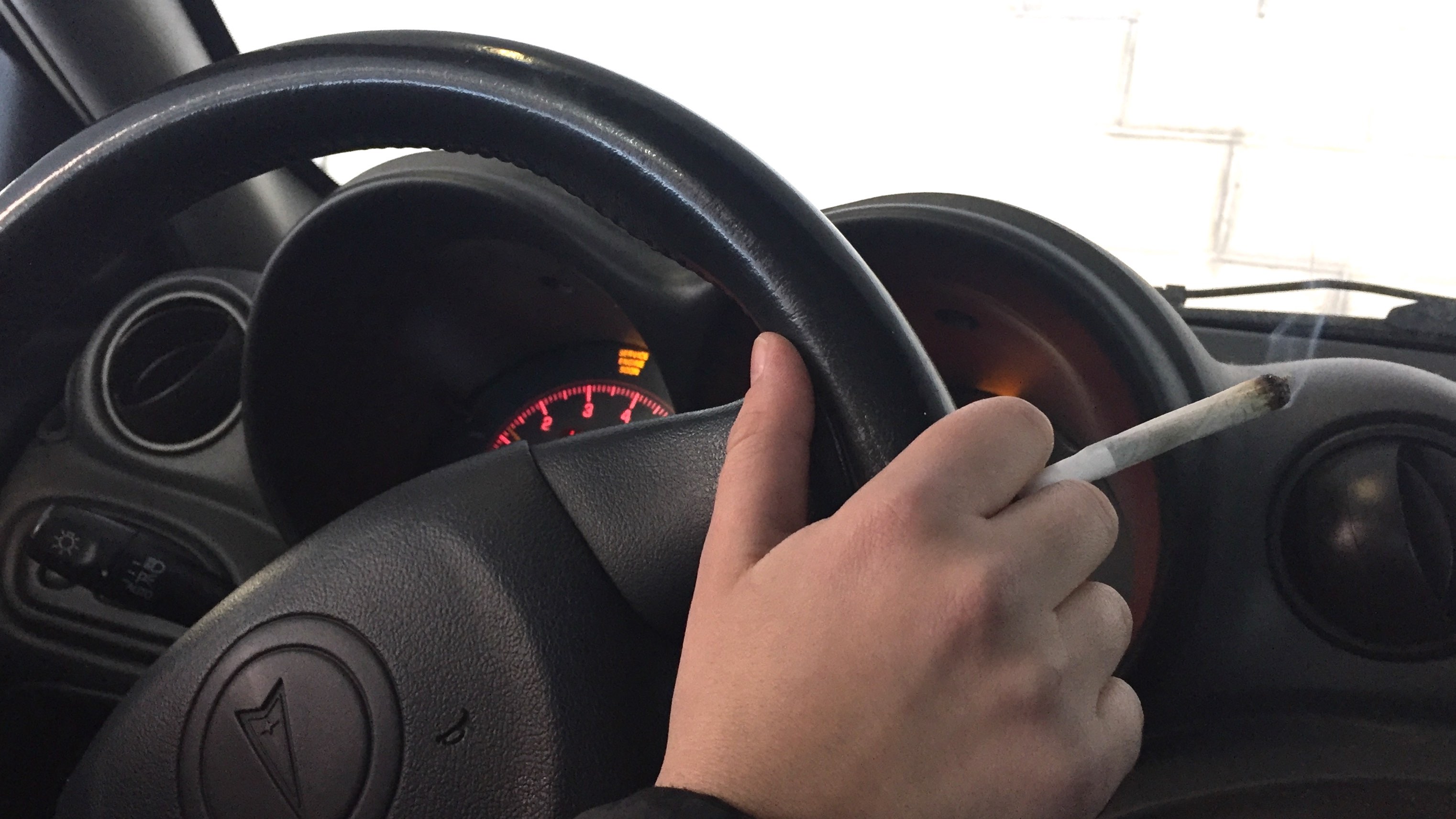Cannabis
Impaired driving tests worry medical cannabis users
Tests are used as evidence in court, following legalization

caption
Some medical cannabis users are worried about driving because of impaired driving tests.Since cannabis became legal, medical cannabis user Debbie Stultz-Giffin worries every time she gets into a car.
Stultz-Giffin has multiple sclerosis. For 20 years, she’s been using the drug to deal with her symptoms.
“I have a letter saying I’m a medical cannabis patient (and) that I do drive, but that I will be unable to pass the roadside sobriety test,” says Stultz-Giffin.
The letter is from her family doctor and states that, in his opinion, she’s not impaired. Related stories
Part of her worry is the Dräger Drugtest 5000, the device used by police to check for levels of THC, the ingredient in cannabis that gets users high. The device tests THC in saliva, and is the only one authorized by the federal government to check for impaired driving.
This test was implemented in Nova Scotia in December, more than a month after cannabis was legalized in Canada. Stultz-Giffin is worried the test will detect THC in her system, even when she hasn’t used cannabis before driving.
RCMP Const. Chad Morrison, the Nova Scotia provincial drug test expert co-ordinator, says the device does not test for build-up of THC in fatty cells, which would get released over a period of a month.
“The test that we do doesn’t really discriminate between the drugs that they’re taking recreationally or drugs they’re taking for a medical purposes,” says Morrison. “Ultimately, we ask: is this person impaired and do we believe they’re impaired by drugs.”
Stultz-Giffin has a second worry: her inability to pass the Drug Recognition Expert evaluation because of her multiple sclerosis.
Earlier this month, Michelle Gray, a medical cannabis user who has MS, had her car impounded for having cannabis in the car after testing positive for THC. She used cannabis much earlier in the day and the RCMP determined she wasn’t impaired after a DRE evaluation.
“The tests are totally ineffective,” says Stultz-Giffin, who chairs Maritimers Unite for Medical Marijuana, a group that advocates for chronically ill patients who are licensed to consume medical cannabis.
To test positive with a swab, a user would have to have 25 or more nanograms of THC in their saliva.
Although THC does leave saliva more quickly than urine and blood, a 2014 study by researchers at Norwegian Institute of Public Health and Oslo University Hospital found “frequent use of high dosages of cannabis may lead to prolonged detection times.” It means users like Stultz-Giffin would potentially test positive, even if they didn’t consume the drug before driving.
If the swab tests positive, the police officer has three choices: demand a blood sample, demand a DRE evaluation at the detachment, or demand both. The DRE evaluation must be conducted by an officer who has gone through a three-week training process.
The evaluation is made up of 12 steps. Lawyer Kyla Lee says this is where things get muddy.
Lee defends people charged with impaired driving. She went through the DRE training process in British Columbia and was not impressed with what she saw.
During the evaluation’s third step, the individual is asked if they have a medical condition that could cause impairment. Specifically, they are questioned about their medical history and medications they are taking for that condition.
“The problem is that their training doesn’t tell them to then take the next step and factor that in their ultimate assessment,” says Lee.
“They factor it into guilt, not to innocence.”
The evaluation includes balance tests, such as standing on one leg. The officer also looks for jerky eye movements and puncture marks. Lee believes all of these things could be linked to medical conditions that have nothing to do with drug use.
DRE evaluations have been used in Canada for almost two decades, but cannabis legalization has brought changes. Morrison says there’s a “drug presumption” section built into the regulations. The section says if DRE determines a person is impaired and they identify a drug category that shows up in the individual’s system, then it is presumed that it is the drug that was causing the impairment.
DRE results are accepted by the courts. Since cannabis legalization, DRE is the main piece of evidence used as proof of impairment in court, Morrison says.
Stultz-Giffin says she hears from other medical cannabis users who are worried every day.
“It drives their anxiety or PTSD, or any other mental health issues right through the roof,” she says.
For now, Stultz-Giffin hopes her physician’s note will help her, if she is ever stopped by police.

